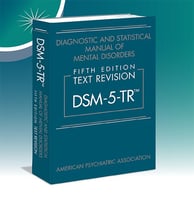In a blog post today, APA CEO and Medical Director Saul Levin, M.D., M.P.A., marked the 25th...
Fluoxetine Found to Reduce Symptoms of Hypochondria
 |
“Although hypochondriasis was not retained as a diagnosis in DSM-5, the new diagnoses of illness anxiety disorder and somatic symptom disorder both retain health/illness anxiety as a prominent feature; therefore, we anticipate that the results from this trial will be generalizable to many individuals with these DSM-5 diagnoses,” Brian A. Fallon, M.D., director of the Center for Neuroinflammatory Disorders and Biobehavioral Medicine at Columbia University, and colleagues wrote.
Fallon and colleagues randomly assigned 195 adults with DSM-IV hypochondriasis to one of four treatment conditions: placebo, cognitive-behavioral therapy (CBT), fluoxetine, or joint treatment with both fluoxetine and CBT for 24 weeks. At the start of the trial and again at 6, 12, and 24 weeks later, the patients underwent a battery of tests, which assessed hypochondriacal symptoms, other psychopathology, adverse events, functional status, and quality of life.
Patients assigned to CBT received six in-person, 60-minute weekly sessions with a therapist, followed by two biweekly and three monthly booster sessions. Patients assigned to fluoxetine received the medication on a fixed-flexible dosing regimen, beginning at 10 mg daily and increasing as tolerated and needed to 80 mg/day.
The researchers compared the proportion of responders in each treatment group. Response was defined as improvement of at least 25% over baseline scores on both the Whiteley Index and the Yale-Brown Obsessive Compulsive Scale for hypochondriasis (H-YBOCS-M).
The researchers found that patients who received either fluoxetine, CBT, or a combination of the two had better response rates than those who received placebo (41.84% in the individual active treatment group and 47.17% in the joint treatment group compared with 29.55% in the placebo group). Secondary analyses of the Whiteley Index score revealed that fluoxetine was significantly more effective than placebo and was associated with a significantly faster rate of improvement over 24 weeks. Compared with placebo, patients receiving fluoxetine also had significantly lower anxiety scores and higher quality of life scores. There were no significant differences between treatment-emergent adverse events or dropout rates across the groups.
“The improvement with fluoxetine could not be accounted for by improvement in depression alone, as the difference in depression scores over time was not significant. This suggests that pharmacotherapy had a relatively specific effect on hypochondriacal symptoms,” Fallon and colleagues wrote. “In contrast to hypochondriasis, somatization did not improve in any of the treatment arms.”
(Image: Pressmaster/Shutterstock)





